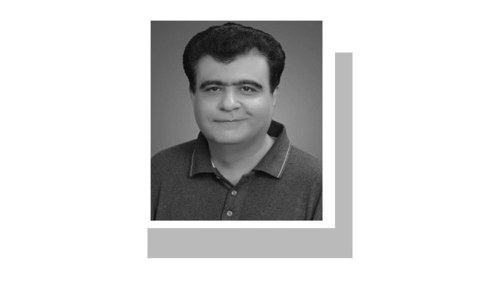IN the India of today, members of the ruling Hindutva clique can get away with demonising Muslims and other minorities without batting an eyelid. They hardly face any reprimands from their leadership, while the international community also mostly maintains a stony silence where persecution of minorities in India is concerned.
The comments made in a recent media interview by Subramanian Swamy, a member of the Indian parliament belonging to the ruling BJP, regarding Muslims, can only be described as hate speech of the most vile kind, and in any civilised dispensation the lawmaker would be facing charges of inciting communal hatred.
While talking to VICE News, Swamy told the interviewer that wherever there is a large Muslim population “there is always trouble” while adding that he was being “kind” by not letting “them [Muslims] ... enter India”.
He added that Muslims in India were not considered equal citizens. Such comments, from the classic playbook of right-wing hate-mongers and demagogues, belong in the dustbin and have no place in a democratic society.
But in today’s India, where a hateful Hindu revivalist narrative prevails, they appear to be par for the course. When India’s home minister and the chief minister of Uttar Pradesh — its most populous state — can make similar statements inciting and condoning violence against Muslims, perhaps such despicable words are no mere slip of the tongue; it appears to be part of the national narrative. After all, the BJP is and has been for decades the standard-bearer of communal politics in India. Prime Minister Imran Khan has rightly compared Mr Swamy’s comments to the Nazis’ demonisation of Jews.
The fact is that such irresponsible remarks from politicians in India — coupled with the hyper-nationalism of Indian media outlets — has had an impact on radicalising people in that country, and has contributed to the normalisation of anti-Muslim violence.
The mob lynchings of Muslims on suspicions of eating or transporting beef; the deplorable lockdown of India-held Kashmir; and the recent communal riots in Delhi all point to the fact that when the state condones and supports divisive policies, these have a trickle-down effect on citizens. If the police, bureaucracy and lawmakers stand by as minorities are cornered and pummelled, it does not bode well for national harmony.
Will the custodians of the ‘world’s largest democracy’ address these toxic trends, and will their international supporters raise their voices against blatant rights violations by a major trading partner?
Published in Dawn, April 5th, 2020













































